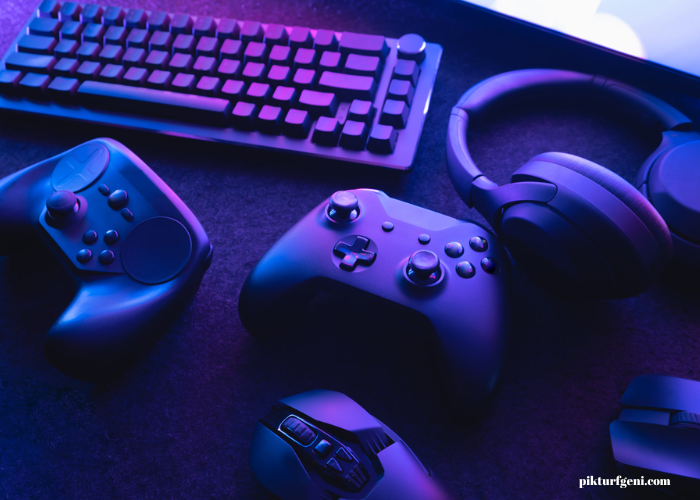In recent years, gaming has transcended its traditional boundaries to become a global phenomenon, captivating millions of players worldwide. With the advent of advanced technology, immersive gameplay experiences, and widespread accessibility through various platforms, the popularity of gaming continues to skyrocket. From casual mobile games to competitive eSports tournaments, the gaming industry has evolved into a multi-billion-dollar ecosystem that shows no signs of slowing down. Platforms like Paende.net have contributed significantly to this growth, offering players diverse gaming experiences and opportunities for engagement.
Importance Of Safety Measures In Gaming
Amidst this surge in gaming enthusiasts, ensuring a safe gaming environment has become paramount. While the thrill of virtual adventures and intense competition fuels our passion for gaming, it’s crucial to acknowledge and address the potential risks associated with prolonged gaming sessions. From physical health concerns like repetitive strain injuries (RSI) to online safety issues such as cyberbullying and phishing scams, the need for comprehensive safety measures cannot be overstated.
Use Strong Passwords And Two-Factor Authentication (2FA)
In the realm of online gaming, security should be a top priority for players of all levels. One of the fundamental pillars of digital security lies in the use of strong passwords and the implementation of Two-Factor Authentication (2FA). Let’s delve into why these measures are crucial and how gamers can effectively safeguard their accounts.
Explanation Of Strong Passwords And Their Significance
Strong passwords act as the first line of defense against unauthorized access to gaming accounts. They are complex combinations of letters (both uppercase and lowercase), numbers, and special characters. The significance of strong passwords cannot be overstated; they form a robust barrier against hacking attempts and protect sensitive player data, including personal information and in-game assets.
Hackers employ various techniques, such as brute force attacks and dictionary attacks, to crack weak passwords. By using strong passwords, gamers can significantly reduce the risk of falling victim to these malicious activities. It’s essential to avoid common passwords, such as “123456” or “password,” as they are easily guessable and provide minimal protection.
Benefits Of Using 2FA In Gaming Accounts
Two-Factor Authentication (2FA) adds an extra layer of security to gaming accounts by requiring users to provide two forms of identification before gaining access. Typically, this involves something the user knows (password) and something they have (a unique code sent to their mobile device or email).
The benefits of 2FA in gaming accounts are manifold. Firstly, it greatly enhances security by making it significantly more challenging for unauthorized individuals to breach an account, even if they manage to obtain the password through illicit means. Secondly, it provides peace of mind to gamers, knowing that their accounts are fortified against potential threats. Lastly, many gaming platforms and services offer incentives for enabling 2FA, such as bonus rewards or enhanced account protection features.
Tips For Creating And Managing Strong Passwords
Creating and managing strong passwords is a skill that every gamer should master. Here are some tips to ensure your passwords are robust and secure:
Complexity is Key: Use a combination of uppercase and lowercase letters, numbers, and special characters in your passwords. Avoid using easily guessable sequences or common words.
Length Matters: Aim for passwords that are at least 12-16 characters long. It is generally accepted that longer passwords are more secure and more difficult for hackers to crack. Avoid Personal Information: Refrain from using personal information such as your name, birthdate, or favorite sports team in your passwords.
Unique for Each Account: Use different passwords for each gaming account you own. This way, if one account is compromised, the others remain protected.
Consider Password Managers: Utilize reputable password managers to generate and store complex passwords securely. These tools can also assist in managing multiple accounts effortlessly.

Secure Your Gaming Devices
Securing Your Gaming Devices: Protecting Your Digital Playground
In the digital age, where gaming consoles, computers, and mobile devices are the gateways to vast virtual worlds, ensuring the security of these devices has become paramount. From safeguarding personal data to preventing unauthorized access and theft, taking proactive measures to secure your gaming devices is crucial for a seamless and worry-free gaming experience.
Importance Of Securing Gaming Consoles, Computers, And Mobile Devices
- Protecting Personal Information: Gaming devices often store a wealth of personal information, from login credentials and payment details to personal messages and gaming history. Securing these devices helps prevent data breaches and identity theft.
- Preventing Unauthorized Access: Unauthorized access to gaming accounts can lead to various issues, including unauthorized purchases, loss of progress, and even account bans. Securing your devices adds an extra layer of protection against such risks.
- Safeguarding Financial Assets: With the rise of in-game purchases and digital currencies, securing gaming devices is crucial to protect financial assets linked to gaming accounts.
- Maintaining Gaming Experience: Security breaches can disrupt your gaming experience, causing downtime, loss of progress, and frustration. Securing devices ensures uninterrupted gameplay and peace of mind.
Be Cautious With Personal Information
In the digital age, where connectivity is ubiquitous, safeguarding personal information has become paramount. Gamers, in particular, often find themselves sharing sensitive details online, unaware of the potential risks. This section delves into the dangers associated with sharing personal information and provides essential guidelines for protecting oneself while gaming.
Risks Associated With Sharing Personal Information Online
Identity Theft: One of the most significant risks of sharing personal information online is identity theft. Hackers and cybercriminals can exploit even seemingly innocuous details, such as your name, address, or birthdate, to impersonate you or access sensitive accounts.
Cyberstalking: Revealing too much personal information can make you a target for cyberstalkers. These individuals may harass or intimidate you online, leading to a range of emotional and psychological distress.
Financial Fraud: Sharing financial information, such as credit card details or bank account numbers, can expose you to financial fraud. Scammers may use this information to make unauthorized purchases or steal your money.
Online Predators: Children and young gamers are particularly vulnerable to online predators who may exploit their naivety to gain access to personal information or engage in harmful behaviors.
Conclusion
Prioritizing safety and well-being is key to enjoying gaming responsibly. By following these ten essential safety measures, you can create a healthy gaming environment that promotes physical, mental, and emotional wellness. Remember to take breaks, practice self-care, and stay informed about best practices for safe and enjoyable gaming experiences.
